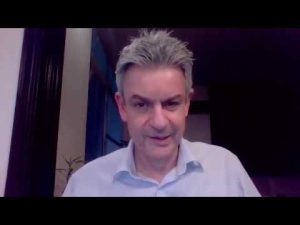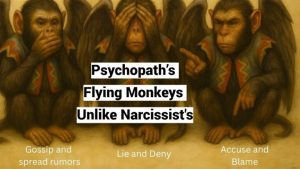Table of Contents
- 1 Introduction and Gambling Addiction Statistics
- 2 Distinction Between Professional and Compulsive Gamblers
- 3 Gambling Disorder: Definition and Misconceptions
- 4 Addiction to the Gambling Process, Not the Outcome
- 5 Relationship Between Gambling and Mental Health Disorders
- 6 Grandiosity and Magical Thinking in Gambling
- 7 Effectiveness of Responsible Gambling Tools
- 8 Gambling as an Organizing Principle of Society
- 9 Connection Between Gambling, Narcissism, and Probability
- 10 Resistance to Gambling and Nostalgia for Certainty
- 11 The Hidden Nature of Gambling Addiction
- 12 Casino Environment and Psychological Design
- 13 Transition to Gambling Apps and Future Trends
- 14 Sports, Aggression, and Gambling Interplay
- 15 Virtualization of Sports and the Future of Gambling
- 16 Closing Remarks and Follow-up Plans
Introduction and Gambling Addiction Statistics
- The meeting began with an introduction to the topic of personality disorders (BPD and MPD) in relation to gambling addiction. Statistics on global and US-specific gambling addiction prevalence and its psychological impact, such as suicidal ideation and abusive behavior, were discussed. [00:00]
Distinction Between Professional and Compulsive Gamblers
- The speaker shared his personal experience as a professional gambler, emphasizing the difference between professional gamblers (calculated, disciplined, mathematical) and compulsive gamblers (impulsive, addictive). [05:00]
Gambling Disorder: Definition and Misconceptions
- Explained the concept of gambling disorder as a behavioral addiction, not a compulsive or impulse control disorder. Highlighted the motivation behind gambling as related to reward systems rather than anxiety or compulsion. [08:30]
Addiction to the Gambling Process, Not the Outcome
- The addictive nature of gambling lies in the experience, anticipation, uncertainty, and risk rather than the monetary outcome. Losses serve as psychological self-harm and help gamblers manage internal anxiety and depression. [15:40]
Relationship Between Gambling and Mental Health Disorders
- Discussed the co-occurrence and strong associations of gambling disorder with personality disorders such as narcissistic personality disorder, borderline personality disorder, and psychopathy. Shared common features like grandiosity, entitlement, defiance, lying, magical thinking, and cognitive biases. [28:50]
Grandiosity and Magical Thinking in Gambling
- Described how grandiosity and magical thinking motivate gamblers, contributing to distorted reality perception and cognitive distortions, making gambling disorder complex and more pathological compared to other addictions. [35:40]
Effectiveness of Responsible Gambling Tools
- Critiqued tools like betting trackers and responsible gambling aids as ineffective, asserting that discipline is innate and such tools do not work for those suffering from gambling disorder. [45:00]
Gambling as an Organizing Principle of Society
- Addressed how gambling permeates various institutions (finance, military, healthcare) and is often disguised as risk management, though it actually enhances risk. Discussed the societal normalization of probability and risk. [48:00]
Connection Between Gambling, Narcissism, and Probability
- Explored how the rise of narcissism in society ties into gambling’s popularity through shared traits such as enjoyment of uncertainty, grandiosity, magical thinking, and probabilistic worldviews. Society’s risk aversion contrasts with gamblers’ risk-seeking behavior. [59:30]
Resistance to Gambling and Nostalgia for Certainty
- Discussed social movements resisting gambling-like probabilistic thinking by seeking rigid, deterministic order, yet misunderstanding the difference between change and probability, leading to societal instability. [01:08:00]
The Hidden Nature of Gambling Addiction
- Debated whether gambling is truly a “hidden addiction,” comparing it to alcoholism. Noted gambling’s rapid escalation (“telescoping”) that makes its destructive impact more sudden and dramatic. Shared anecdotes on gambling losses. [01:15:00]
Casino Environment and Psychological Design
- Explained how physical casino environments (e.g., lack of clocks, color schemes, social settings) are designed to manipulate behavior by enhancing consumption, disinhibition, and magical thinking. [01:32:00]
Transition to Gambling Apps and Future Trends
- Foretold a future where gambling becomes more automated, isolated, and integrated with technology (social media, crypto, AI), leading to atomization and heightened addiction risks. Predicted diminished human interaction in gambling. [01:38:00]
Sports, Aggression, and Gambling Interplay
- Analyzed sports as sublimated aggression and its intrinsic probabilistic nature making it a natural partner with gambling. Highlighted concerns about the changing relationship due to gambling becoming more technological. [01:45:30]
Virtualization of Sports and the Future of Gambling
- Discussed the potential for fully technological and customizable sports ecosystems influenced by gambling participants, predicting massive industry growth and transformation. [01:52:30]
Closing Remarks and Follow-up Plans
- Agreed on the possibility of a future discussion (Part 2) to address treatment and recovery options for gambling disorder and related personality disorders due to the complexity of the topic. [02:00:00]
- [⚠️ Suspicious Content] Nature of Social Media
Social media is not a communication tool but rather a platform for like-minded people to form groups and reinforce existing beliefs, often creating echo chambers where opposing views are ignored. Attempting to use social media for genuine debate or changing minds is ineffective and often met with hostility such as blocking or trolling [00:00].
Social media should be understood as platforms for building communities, not media in the traditional sense, as they lack neutrality, objectivity, and true debate [02:00].
Building Communities on Social Media
Success on social media comes from identifying trending topics that align with one’s agenda and posting content that attracts supporters, thereby increasing influence and strength [05:10].
Influencers typically avoid engaging with critics or dissenters and focus on creating a supportive community by blocking or banning opposition [06:00].
Intimacy within the community is vital for stickiness, achieved by revealing personal vulnerabilities and realities carefully to build trust and loyalty among followers [08:30].
Sharing hopes and solutions, along with truthful content grounded in reality, promotes motivation rather than just criticism or negativity [11:50].
Managing Identity and Messaging
Politicians must decide their core identity early and remain consistent to avoid losing trust and followers. Key identity decisions include being inclusionary vs. exclusionary, past-oriented vs. future-oriented, and focusing on construction vs. destruction [14:20].
Image management on social media is discouraged; instead, let an authentic image emerge from consistent actions and speech [13:30].
Integrity and Perception
Avoid corruption, both in reality and appearances, as perceptions can be more damaging than actual facts. Example provided of Supreme Court judge Clarence Thomas to illustrate the importance of managing appearances [16:10].
Motivation vs. Manipulation
Motivating people means empowering them with roles and visions, whereas manipulating involves forcing people to behave against their true nature, which breeds hatred and backlash [17:20].
Nuance and Complexity in Politics
Politicians should embrace nuance and avoid oversimplified “splitting” (all good vs. all bad) because reality is complex. Though this may reduce popularity, it reflects wisdom and credibility [18:30].
Wisdom vs. Popularity
The choice between being a wise politician or a popular figure is crucial; wise politicians often suffer but effect real change, while popular figures gain material benefits but leave no lasting legacy [19:30].
Wisdom requires thoughtful action, openness to collaboration, and avoiding arrogance and self-centeredness typical of “selfie culture” [20:50].
Role of a Politician
A politician’s main role is guiding people from fantasy to reality, leading with clear vision and grounded truth [21:50].






